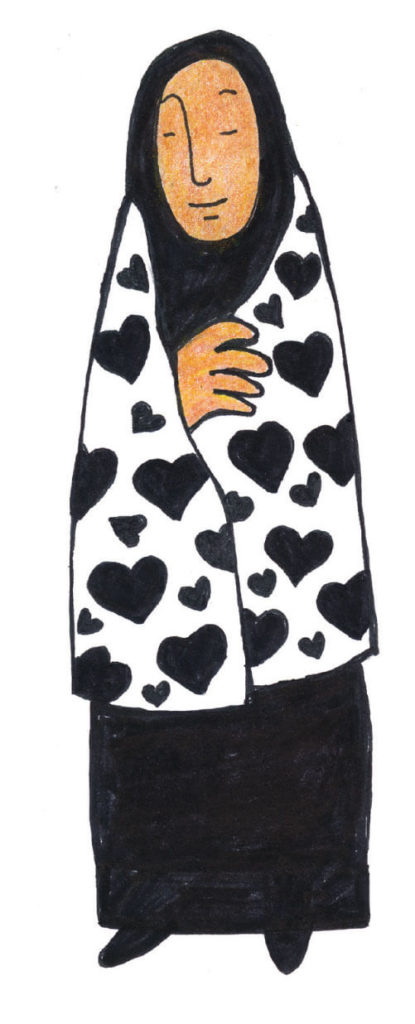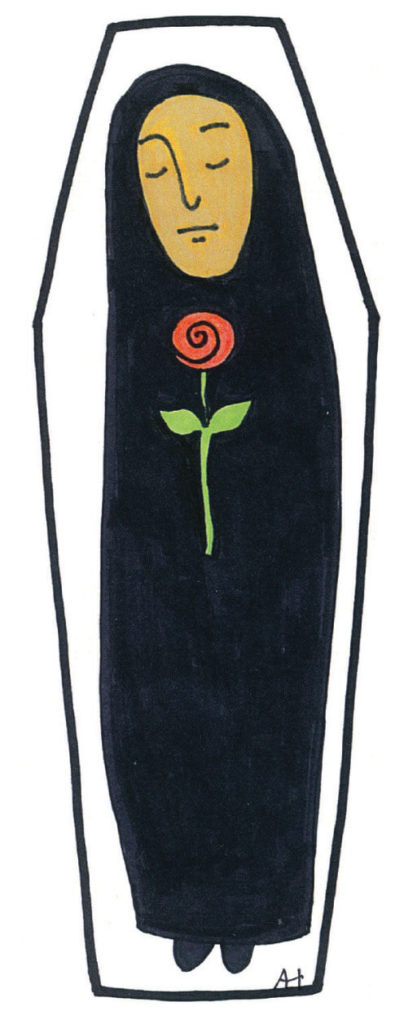
Jesus’ two most developed proverbs in Sunday’s gospel contrast a splinter with a beam and a good tree with a decayed tree. Both proverbs make their points through drawing on people’s concrete, everyday experience — in the first case, of carpentry; in the second case, of orchards.
The Greek word dokos refers to the beams to which carpenters attach rafters and studs in the whole support structure of a house. The contrast between the splinter and the beam is not only between tiny and immense, but also between a single speck and a fault underlying a whole system of behavior.
The splinter and beam imagery exaggerates the difference between the one, small thing one sees in the neighbor and whole, huge, deeply-rooted faults one can’t see in one’s self. This is a good-humored proverb that makes the same point as Scottish poet Bobby Burn’s famous poem “To a Louse,” which ends with a louse crawling up the back of a lady’s hair in church and the poet’s observation, “Ah, to see ourselves as others see us.” Criticizing others invites their scrutiny in return.
- What experiences have you had that bear out the truth that both Jesus’ and Burns’s proverbs convey?
A good tree produces good fruit. A dead or decaying tree produces no fruit or poor fruit. Trees are known by the fruit they produce. The proverb implies people’s hearts work just like fruit trees. Their actions are fruit that reveals their hearts.
In Luke’s gospel this proverb is one more instance where the evangelist sounds a food theme. One beatitude congratulates the hungry. This proverb praises people whose actions are food for others and offer them nourishment. It invites us to assess what kind of nourishment we offer those around us.
New proverbs arise to educate us to new wisdom. For example, trees have importance not only for their fruit but for their capacity to transform carbon dioxide into oxygen. They make the air we breathe. People who care for earth teach us, “People need trees more than trees need people.”
- What proverbs that you know or use express the values and wisdom you most want to pass on to your children or those you teach or work with?
- What are your favorite contemporary proverbs from bumperstickers?
- What proverb would you pay to have framed in your living room?
Luke’s four beatitudes stand in tension with four woes. These opposites invite us to assess where we stand on a continuum between poor and rich, full and hungry, laughter and sorrow, persecuted and popular. The beatitudes invite us to identify ways we struggle with these opposites in our lives.
Our cultural proverbs express values such as consumerism, individualism, or competition which stand in tension with such Christian values as sharing goods, solidarity among the members of the human family, and cooperation.
- What tensions do you experience between sharing and acquiring, individualism and solidarity, competition and cooperation?
- What proverbs do you find on the editorial page of your local newspaper today?

